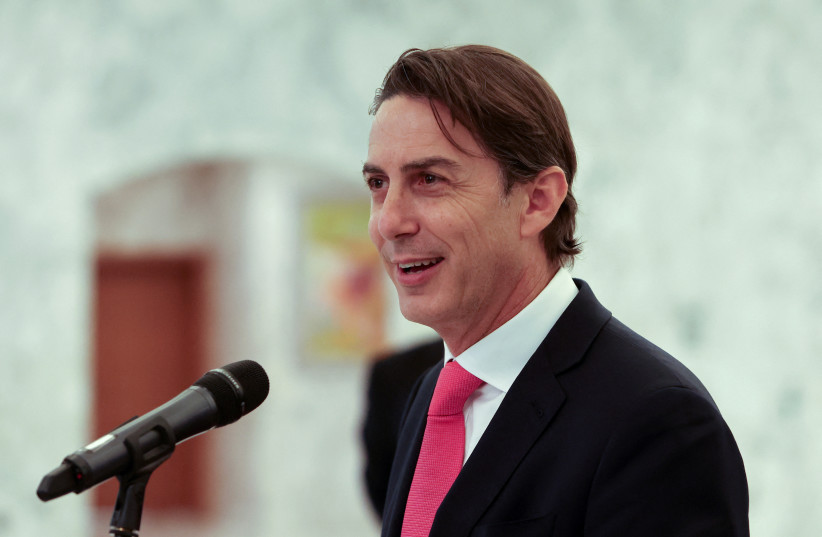Lebanon’s President Michel Aoun announced his country’s acceptance of the US-brokered maritime border deal with Israel, saying on Thursday that talks had come to “a positive end.”
Aoun said the agreement represented an “historic achievement” in which Lebanon regained 860 sq. km. of disputed maritime territory, but insisted it did not pave the way to normalization of relations with Israel.
“A collapsed Lebanon is not a recipe for security for Israel. A prosperous Lebanon is good for Lebanon and good for its neighbors."
US negotiator Amos Hochstein
The deal, which Israel’s cabinet approved on Tuesday, allows the country to produce natural gas from the Karish Field and for Lebanon to excise gas from the abutting Kana Field, without the risk of sparking a third war between the two countries that lack diplomatic relations.
His announcement does not officially mean the deal has come into force. According to a draft text seen by Reuters, the understanding will take effect once Lebanon and Israel send letters to Washington, which will issue a notice announcing the deal is in place.

Israel and Lebanon are then to send the coordinates of the border to the United Nations to be officially recognized.
Politicians in both countries have expressed skepticism about the deal, fearing that the agreement overly favored the other side.
Aoun told the Lebanese people in a televised address that the agreement fully preserves Lebanese rights and meets its demands. He also tweeted about his support for the deal, explaining that he hoped the deal would lay the foundation stone for an economic revival by allowing for the completion of oil and gas exploration.
He stressed that in arriving at the deal, Lebanon had not made any concession to Israel, and that the agreement should not be seen as a step toward normalization.
Aoun underscored that it had taken 10 years to reach this moment.
Minutes after Aoun spoke, US energy envoy Amos Hochstein, who mediated the agreement, said he hoped TotalEnergies and Italian multinational energy company ENI would begin preparing for gas exploration within weeks.
The two had won a bidding round to explore in Lebanese maritime waters alongside Russian firm Novatek, which pulled out last month.
The maritime deal will open the door to more exploration on both sides but does not resolve a longstanding disagreement over the land boundary between Israel and Lebanon.
Amos Hochstein appears on Israeli TV
In an interview with Channel 12 on Thursday, Hochstein attempted to assuage Israeli concerns over the deal.
“What Israelis have to understand is that this is not a traditional agreement. It is not a line where someone got more and by extension someone got less. Both sides could win here because both sides wanted different things [and] needed different things.”
Past proposals never got to the stage of a final agreement, Hochstein said, explaining that what occurred this fall is that after 10 years, there was an opportunity to end the maritime border conflict, he said.
“If you wait for the right moment on a political timetable or calendar, there’s no guarantee the opportunity comes back. So when there’s a chance to get an agreement between enemy states – this is not an agreement between friends – you take that opportunity, to maintain Israel’s security,” Hochstein said.
The deal, he said, is particularly important for Lebanon, a country where most people only have two hours of electricity a day.
“This is not about giving money to Hezbollah. It’s about giving a little bit of money and a little bit of resources [into Lebanon] and putting a stop to the decline and collapse of the Lebanese government.”
“A collapsed Lebanon is not a recipe for security for Israel. A prosperous Lebanon is good for Lebanon and good for its neighbors,” Hochstein said.•
